A Life: Priscilla Sears ‘was bold enough to be very demanding’
|
Published: 04-13-2024 10:01 PM
Modified: 04-16-2024 6:14 PM |
HANOVER — Priscilla Sears noticed things. Whether it was unexpected natural beauty, a sublime musical performance or a quirky piece of jewelry, she was always ready to be astonished.
And she noticed people, especially the ones who most needed noticing.
In the fall of 1977, Sears, a professor of English at Dartmouth College, noticed a freshman football recruit from inner-city St. Louis named Byron Boston.
Unsure how to navigate an unfamiliar academic and social landscape, Boston was disoriented and in dire need of guidance.
“I was totally clueless,” he said by telephone last week.
Boston and his wife, Andi, now live in Virginia. He is the chief executive officer of Dynex Capital, Inc., a real estate investment trust.
At a wine and cheese party during the first week of school, Sears asked what classes Boston was taking, and he described the schedule his advisor had designed for him.
“No, no, that’s all wrong!” Sears said. “You’re supposed to be over here with me!”
Article continues after...
Yesterday's Most Read Articles
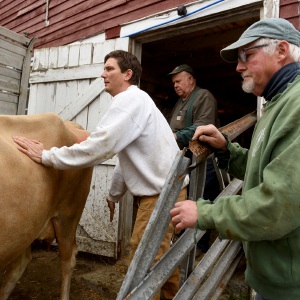 Herd departs Hartford’s last remaining dairy farm
Herd departs Hartford’s last remaining dairy farm
 Bald eagles are back, but great blue herons paid the price
Bald eagles are back, but great blue herons paid the price
 At Dartmouth, hundreds protest ongoing war in Gaza and express support for academic freedom
At Dartmouth, hundreds protest ongoing war in Gaza and express support for academic freedom
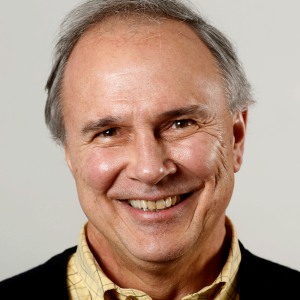 Kenyon: What makes Dartmouth different?
Kenyon: What makes Dartmouth different?
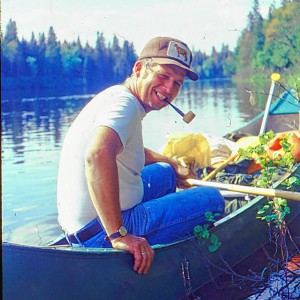 A Life: Richard Fabrizio ‘was not getting rich but was doing something that made him happy’
A Life: Richard Fabrizio ‘was not getting rich but was doing something that made him happy’
And she was right.
Boston’s math skills were strong, but literature and writing were his academic Achilles heels.
He ditched his original advisor and took three classes with Sears during his first year.
“It really shored up my strength in English and writing,” he said. “If I had taken those (other) courses, it would have been a huge mistake.”
Sears died last August at age 90 after living for years with dementia.
Over her 30 years at Dartmouth, she formed close bonds with her students, many of whom kept in touch with her throughout her life. She had a talent for meeting freshmen where they were academically when they arrived on campus.
“She was an extraordinary person, kind, principled, committed to good causes and rich in imagination,” Laurence Davies, an emeritus professor of English and comparative literature, said.
Priscilla Mae Flagg was born in Asbury Park, N.J., the daughter of Harry “Wow” Flagg and Ruth Flagg.
Harry Flagg worked for New England Power and Light, facilitating the sale of land for rights of way for electric towers and lines. The family moved several times during Sears’ childhood, though they primarily lived in Connecticut before moving to Massachusetts and then New Hampshire.
Priscilla Flagg met her future husband, Tom Sears, in a music appreciation class at the University of New Hampshire.
“Music was their shared mutual love,” their daughter and only child Sarah Sears said. They listened to everything from Beethoven to Leonard Cohen and John Denver.
Tom loved Priscilla’s brilliance. “You needed a quick wit to keep up with the two of them,” Sarah Sears said of her parents.
Priscilla Sears earned a master’s degree from Wesleyan University and later a doctorate from Tufts University. In 1977, the Sears and their teenage daughter settled in Wentworth, N.H., when she began teaching at Dartmouth.
“She was a magnificent teacher” who cared deeply about her students, former English Department colleague Lynda Boose said in a telephone interview last week.
Sears routinely drove the 30 miles to campus from her home in Wentworth on days that she wasn’t teaching so she could hold extended office hours and help students with their papers.
“She loved being part of Dartmouth” and was always involved with campus life, Boose said.
She made sure her students knew that she noticed them.
“Every time you had something to say, she would come over and kneel down to make sure she heard everything you said and to make sure you knew that she thought what you had to say was important,” Sarah Sears said.
While Boston found that many professors on the Ivy League campus could be condescending toward students from non-traditional backgrounds, Sears held all of her students to the same rigorous standards.
“She was bold enough to be very demanding,” he said. Where other professors tended toward patronizing, “she didn’t treat me differently. She really came at me and made me look at myself. It was a complete mind-opening experience.”
Sears was also a pioneer of diversity.
“There wasn’t much diversity at Dartmouth at that time,” Boston said. Most of it was in Sears’ classes, which were the “most diverse classes on campus,” he said.
She had a remarkable ability to bring students together for challenging conversations, debates and thought-provoking readings.
Boston recalled nearly coming to blows during a discussion of Othello with a classmate from Florida whose life experience could hardly have been more different from Boston’s. “He was a good ol’ boy from Tarpon Springs,” Boston said. Despite the intensity of their arguments, the two ended up becoming great friends.
Sears noticed injustices, both large and small.
An ardent feminist who was “full-tilt-boogie political,” according to her daughter, she was deeply committed to social justice and surrounded herself with friends and colleagues who supported women’s rights.
Sears dressed impeccably and liked to shop at Neiman Marcus, the refined clothing serving as a sort of armor of confidence in a male-dominated campus culture.
Dartmouth first admitted women in the fall of 1972, and two years later just 13% of the faculty were women. Boose was a faculty member from 1985 until her retirement in 2020.
“As a woman, you felt a certain kind of intimidation” on campus, Boose said. “There was harassment of anything feminist.”
By 1996, women made up 27% of the Arts and Sciences faculty. Still, the very idea of discussing anything to do with gender was “prickly” during Boose and Sears’ tenure.
We were “invading male space in some way, and that space was very seriously guarded,” Boose said.
But Sears somehow seemed fearless. “She was ready to take life by the throat and wrestle it to the ground,” Boose said.
In 1997, Sears and Boose traveled to post-war Bosnia to speak at the International Women’s Peace Initiative and continued to advocate for Bosnian refugees in the years that followed. Sears was a fervent believer in the role of women as peacemakers and peacekeepers, and wanted to create a “sense of international sisterhood,” she said in a 1998 Valley News interview.
During the Bosnia trip, Sears and Boose were among a group of international women who journeyed to the town of Prijador to help call attention to the need for safe travel to and from market areas, especially for women, to help revive the devastated economy.
The Dayton Accords, a peace agreement reached in 1995, created the possibility for such travel in theory, but on the ground there was a real fear of violence from Serbian police in the area.
United Nations troops tried to discourage the group from the trip, but they were determined and set out anyway, escorted by two armored personnel carriers and a helicopter, Boose said.
Sears was unflinching in the face of the potential danger. “I can take risks,” she told the Valley News after returning to Hanover.
“I realized we were confronting the Serbs, but if they (the UN) guaranteed us this right and it didn’t really exist, then I needed to be part of demonstrating that.”
During the conference, the two stayed in a hotel they came to realize had been a house of torture during the war.
Amid their shock and outrage at the atrocities committed in the space where they slept, Sears noticed a white owl sitting on a branch outside of their hotel room window.
“We took that as a blessing on our trip,” Boose said.
Sears traveled alone to China to teach English and helped found the women’s studies program at Dartmouth, Sarah said.
“We thought there was a flight of angels looking out for Priscilla, with all of the scrapes she got into,” Boose said.
But she always made it through.
Outside the classroom, the Sears threw parties for students, staff and professors. The couple “shared a love of poetry and drama and put on some wonderful improvised productions,” Davies, her former colleague, said. “Students adored them.”
She loved to explore back roads with friends, letting conversations unfold organically, seeking out diners and slamming on the brakes when she caught sight of something beautiful.
An insatiable reader, Sears recited poetry while driving or doing mundane tasks, though she mostly eschewed the mundane.
“Priscilla was not for the ordinary,” Boose said. “She was an adventure.”
Boose recalled bringing food to Sears, who wasn’t feeling well, at her home one day and upon opening the oven to heat the meal, finding it full of books. The explanation was simple: Sears had run out of bookshelves and didn’t like to cook, anyway.
“She was quite proud of being undomesticated,” Boose said.
Signs of dementia began to appear around 2007, which was Sears’ last year of teaching.
Her daughter lamented the particular cruelty of such a brilliant woman besieged by “a disease where her brain betrays her.”
Christina Dolan can be reached at cdolan@ vnews.com or 603-727-3208.

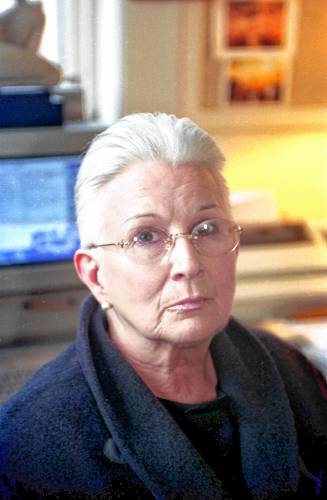
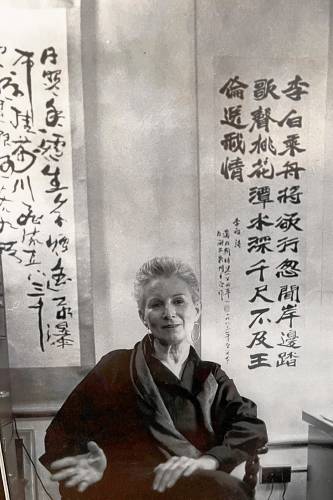
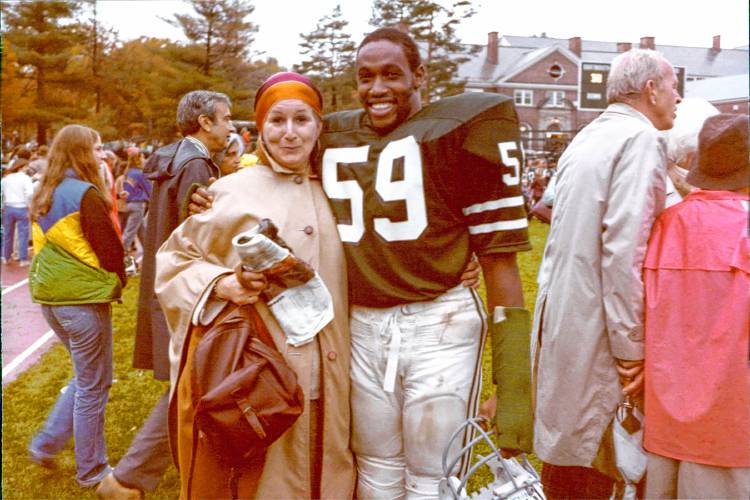
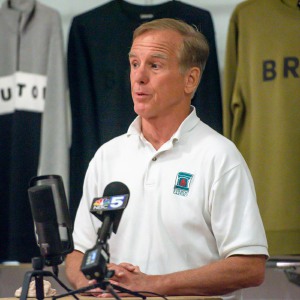 Howard Dean weighs (another) run for governor
Howard Dean weighs (another) run for governor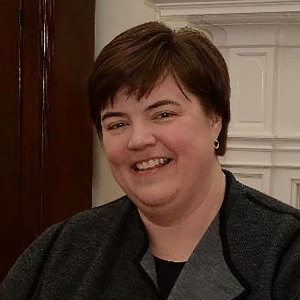 Colby-Sawyer president announces plan to depart
Colby-Sawyer president announces plan to depart Under covered work
Under covered work
